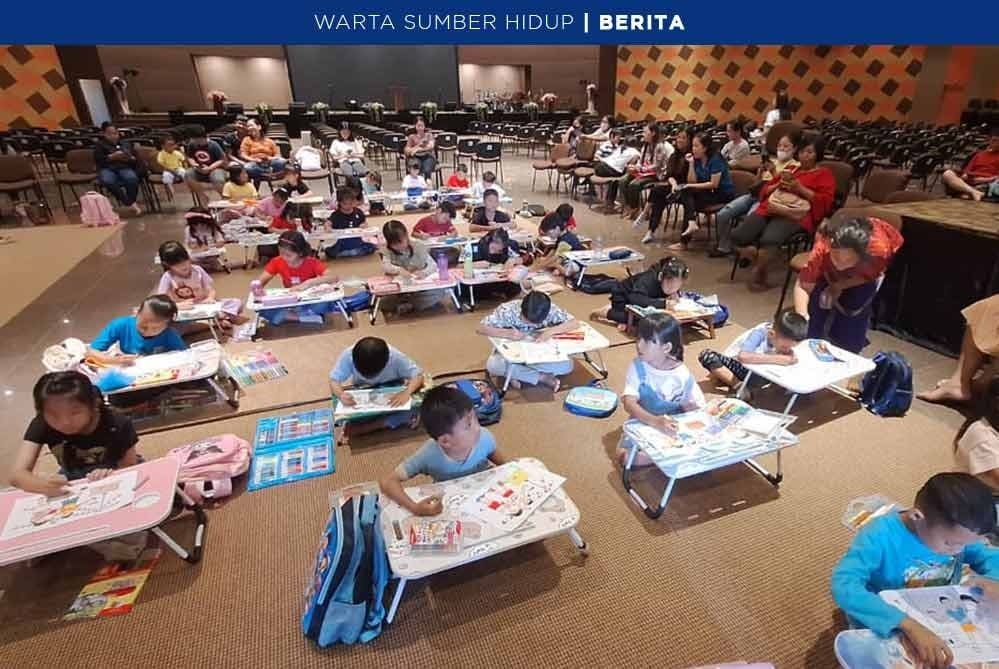On the narrow, morning dew-soaked streets of the Land of Batak, there is always a figure who walks first, clearing away the undergrowth and making way for others. Such a figure is what in Batak tradition, in the words of Dr. Albert Agustin Sitompul, is called sitotas nambur, the pioneer. Tahi Bonar Simatupang, affectionately known as Pak Sim, is the living embodiment of that title. He not only paved the way literally as a freedom fighter, but also blazed a trail of thought and faith, expanding his horizons as a Batak Christian who reflected integrity, sacrifice, and determination in the course of Indonesian history.
Background & Childhood: From Muara to Sidikalang
The Simatupang clan is one of the descendants of Si Raja Lontung. Along with the Aritonang, Situmorang, Nainggolan and Siregar clans, they originally settled on Sibandang Island. In an effort to maintain their identity and expand their territory, they moved to Tarabunga, then to Muara, which is now known as one of the centers of Simatupang clan identity. This overseas history instilled a spirit of mobility and adaptation in the next generation. This spirit would later live on in the person of T.B. Simatupang.
Tahi Bonar Simatupang was born on January 28, 1920 in Sidikalang, an area that at that time included the Bataklanden afdeling, Tapanuli Prefecture. His father, Simon Sutan Mangaraja Soaduon Simatupang, was a postmaster and a Christian nationalist who founded the "Persatuan Christen Indonesia" (PERCHI). His mother, Mina Br. Sibuea, from Pangombusan near Porsea, was a simple woman, full of wisdom and deep Christian faith. T.B. Simatupang grew up amidst the spirit of nationality and church service. In his autobiographical notes, he wrote sincerely, "I am a man in debt... to the nation, the church, and above all to God."
He had his primary education at HIS (Hollands Inlandse School) Pematangsiantar, then continued to MULO (Meer Uitgebreid Lager Onderwijs) Dr. Nommensen in Tarutung. It was there that he began to take shape as a critical and intelligent young man. He was once almost expelled for reading the book "Indonesia Menggugat" by Ir. Sukarno, but was saved by his outstanding achievements.
Loving Husband, Father and Person
In the midst of his great struggle, T.B. Simatupang also led a loving and responsible personal life. He married Sumarti Budiarjo on December 12, 1949. From this marriage, they were blessed with four children: Tigor, Toga, Siadji, and Ida Apulia Simatupang. Despite his busy life as a military man and national thinker, he was still known as a caring father and an attentive husband.
In his various testimonies, he often mentioned that family was where he found inner strength. In the silence and prayers of his wife, and in the smiles of his children, he found the meaning of all the sacrifices he made for the nation and the church.
War & Contribution: From the Military Academy to the Guerrilla Field
After completing his secondary education at the Christelijke AMS in Salemba, Jakarta, he continued his studies at the Royal Netherlands Military Academy (KMA) in Bandung in 1940. He became a "krooncadet" — crown cadet — for showing outstanding achievements. However, he was not just a Dutch-trained officer. He was determined to prove that Indonesians were also capable of building modern armed forces.
After the proclamation of independence, he helped build the Indonesian National Army (TNI). At the age of 29, he was already serving as Deputy Chief of Staff of the TNI. When the Dutch launched the Second Military Aggression, he established a guerrilla headquarters in Banaran, a remote hamlet in Kulon Progo, Yogyakarta. The residence of Karyo Utomo, the head of Banaran hamlet, became his headquarters.
In Banaran, the TNI didn't just strategize militarily. They trained local youth, disseminated information through radio transmitters, and built people's trust. T.B. Simatupang emphasized the synergy between the people and the army. "Independence cannot be achieved by weapons alone, but by the hearts of the people," he emphasized in "Report from Banaran". This place became a symbol of the struggle of the people and the army, which combined in the spirit of independence.
Faith and Thought: The Church Engaged in Revolution
T.B. Simatupang did not only serve in the battlefield. After leaving the active military in 1959, he entered another field of struggle: church ministry. He studied theology, sociology, and politics; studying the works of Karl Barth, Dietrich Bonhoeffer, Reinhold Niebuhr, and Madathiparampil Mammen Thomas. In Mr. Sim, theory and practice merge as one whole living testimony.
According to Prof. John Verkuyl, "T.B. Simatupang is the author and lay theologian who has written most about church and society relations in Indonesia." He rejected the church that was exclusive and only concerned with liturgical issues. Mr. Sim never stops inviting the church to be salt and light in the midst of social suffering. "The church must be actively involved in building society, not just be a spectator of history," he emphasized.
This spirit is very evident in his monumental work, "Christian Duty in Revolution", published by BPK Gunung Mulia. In this book, T.B. Simatupang invites Christians not to be neutral in facing the nation's struggles. He emphasizes that faith must be realized in concrete actions, especially in creating social justice and fighting for full human freedom.
He strongly criticized the passivity of some churches while reminding that Christianity should not be confined to the private sphere. For T.B. Simatupang, the revolution was not only a physical struggle for independence, but also a moral, spiritual and structural struggle. "Living faith always encourages involvement," he wrote. Pak Sim rejected the immoral use of violence and emphasized peaceful struggle based on love, forgiveness, and solidarity.
This book bridges spirituality and social action, and is still relevant today in the face of challenges of inequality, poverty, and corruption. He writes with prophetic courage, and encourages the church to be an active actor in the transformation of the nation.
Integrity, Sincerity, and Living Faith
T.B. Simatupang was not only known as a tough general on the battlefield, but also as a person who was honest, steadfast, and humble in his life principles. His views went beyond military affairs. In his book Christian Faith and Pancasila, he not only criticized communism, but also rejected capitalism-liberalism which he said offered an inhumane path of development. For T.B. Simatupang, true struggle is not just about rejecting other ideologies, but developing a more precise and meaningful understanding of the direction of the nation's struggle. "The most important thing is to formulate a more precise interpretation of our struggle," he wrote, showing the depth of reflection of a soldier of thought.
T.B. Simatupang's personal transformation did not go unnoticed by his colleagues. Rev. Sularso Sopater sharply summarized his life journey: "From mercenarius to militia. From mercenaries to volunteer fighters." He not only fought with weapons, but also fought for justice through his pen and mind. His commitment to the nation's noble values never waned, even towards the end of his life.
Frans Seda recalled that until the end of his days, Mr. Sim continued to think about the future of the nation. One of his last political testaments was a call for the New Order to organize the succession of power constitutionally, a moral call that illustrates his concern for democracy. At the PGI Cikini Hospital, towards the end of his life, he asked to read Philippians 1:21. He calmly uttered, “Verily, to me to live is Christ and to die is gain ”, a statement of faith that concluded the life journey of a warrior who had given his whole self to God.
T.B. Simatupang was also known for his intellectual acumen and subtle satire. When Lieutenant Governor-General Hubertus Van Mook compared himself to Moses who could not enter the Promised Land, T.B. Simatupang responded with a straightforward yet piercing response: "Moses did not enter because he sinned." A satire that recalls the irony of the Dutch Military Aggression of 1947, an act that clearly undermined the spirit of peace that should have been upheld.
Legacy & Inspiration: Sitotas Nambur of the New Age
T.B. Simatupang was the face of a thinking, believing, and courageous Indonesia. He was the perfect embodiment of "sitotas nambur" who wet himself in the path of dew so that generations after him could walk more easily. He was not only a soldier, but also a thinker, diplomat, and servant of the church. As Prof. Verkuyl recalls, "With his writing and his life, he called us to take part in history."
For the younger generation of Indonesia, T.B. Simatupang is an inspiration to live life with integrity. Simatupang showed that Christian faith is not incompatible with nationalism, and that devotion to God is never separate from devotion to one's neighbor.
"I am a man in debt," he wrote. He repaid that debt with example and sacrifice. Now, it's time for a new generation to pick up the baton, to be the sitotas nambur on the path of Indonesia's progress.




















